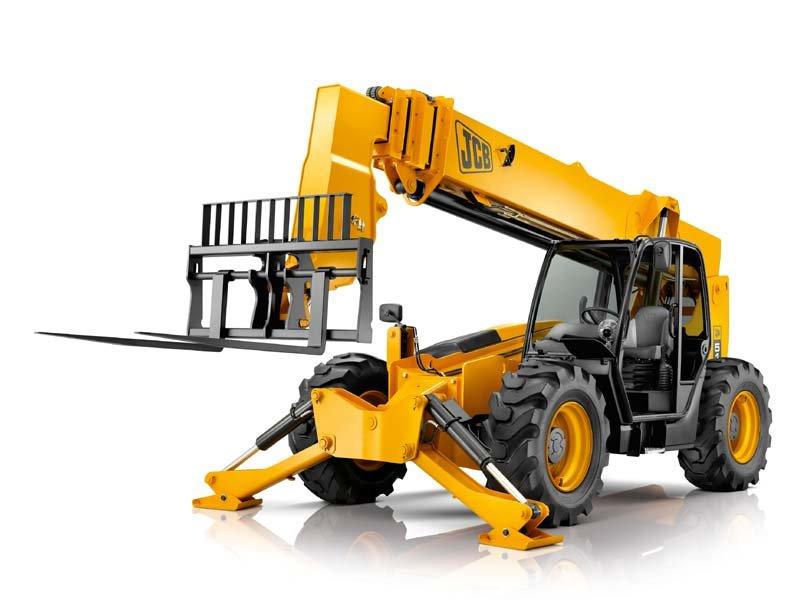Heavy Equipment Rental: Large Machinery for Any Kind Of Construction Task
Heavy Equipment Rental: Large Machinery for Any Kind Of Construction Task
Blog Article
Optimize Your Budget Plan by Comprehending the Costs Related To Building And Construction Devices Rentals
Understanding the complete range of expenses associated with construction tools services is important for maximizing your budget. While the first rental charge may appear simple, numerous added costs-- such as transport, fuel surcharges, and upkeep-- can rapidly gather, affecting your financial preparation. Furthermore, being aware of numerous charges and the details of rental contracts can aid prevent unexpected monetary burdens. What methods can be employed to successfully take care of these costs and make sure a more effective rental experience?
Summary of Rental Costs
When taking into consideration building equipment leasings, understanding the linked expenses is paramount for reliable budgeting and job preparation. Rental expenses can vary substantially based on numerous elements, including devices type, duration of service, and place. The first rental charge often shows the equipment's market demand and its linked operational capacities, influencing the general expense.
Along with the base rental rate, supplementary costs might occur, such as transportation charges, fuel additional charges, and maintenance fees. It is vital to make up these extra expenditures to precisely examine the total cost of leasing tools. Additionally, the rental duration can influence pricing; longer leasings might get discounted rates, while short-term leasings could incur higher daily fees.

Breakdown of Rental Rates
A comprehensive understanding of rental rates is essential for contractors and project supervisors intending to maximize their budget plans. Rental rates for building equipment typically include several elements, including base rates, time-based charges, and use fees.
Base prices are the core charges related to the leasing of the devices, commonly figured out by the type and size of the equipment. These rates can vary dramatically, affected by elements such as equipment need, accessibility, and regional market fads. Time-based fees, which may be daily, weekly, or monthly, serve to suit various project timelines and rental periods.
Furthermore, rental rates might include use charges, which apply when equipment is made use of beyond a defined threshold, ensuring that the rental firm can represent wear and tear. Seasonal need fluctuations can additionally affect rental prices, with peak building periods normally commanding greater prices.
Additionally, understanding the rental firm's policies relating to maintenance and insurance coverage can provide more insight right into the total expense framework. By evaluating these parts, professionals can make enlightened decisions, making sure the selection of rental devices straightens with both project demands and spending plan constraints.
Added Costs to Consider
Understanding the complexities of extra charges is critical for contractors to manage their general leasing costs successfully. Beyond the common rental prices, numerous supplementary charges can significantly impact the total cost of equipment rental. These costs typically consist of shipment and pick-up fees, which can vary based upon range and logistics included in delivering the equipment to and from the task website.
Moreover, some rental business might impose fuel additional charges if the devices is returned with much less gas than when rented. It is also vital to know possible cleaning charges, especially for specialized equipment that calls for detailed upkeep after use.

Completely reviewing the rental arrangement and clearing up these additional costs in advance can help service providers ensure and stay clear of unforeseen prices that budget plans remain undamaged throughout the project lifecycle.
Upkeep and Repair Work Expenditures
Routine upkeep and repair work expenditures are commonly overlooked aspects that can considerably affect the overall price of building tools leasings. When renting out devices, it is critical to think about not just the rental fees however additionally the prospective prices related to keeping the equipment in optimal operating condition.
Several rental companies include standard upkeep as part of the rental contract; nonetheless, more substantial fixings or unexpected malfunctions can lead to additional costs. It's important to review the rental contract thoroughly to comprehend what upkeep solutions are covered and what duties fall on the renter.
Additionally, devices that is not well-kept can bring about inadequacies on duty site, potentially causing delays and enhancing task prices. To minimize these threats, it is advisable to conduct regular evaluations and preserve open communication with the rental supplier pertaining to any kind of concerns that develop throughout usage.
Insurance Coverage and Obligation Expenses
Insurance coverage and obligation expenses are vital components that can considerably impact the overall expense of construction tools services (forklift rental). These expenses make sure that both the rental business and the client are safeguarded from potential economic losses developing from mishaps, damage, or burglary during the rental duration

Additionally, customers ought to know any deductibles or exemptions in the insurance coverage, as these can influence potential out-of-pocket expenditures. Understanding the terms of any insurance protection is vital to prevent unanticipated costs. Eventually, budgeting for insurance and obligation expenditures can help guarantee a smoother rental experience and shield against financial dangers related to construction jobs.
Verdict
In conclusion, an extensive understanding of the costs associated with building and construction tools services is necessary for reliable budget plan management. Ultimately, educated see it here decision-making concerning devices rentals contributes to the overall success of construction ventures.
Rental expenses can vary dramatically based on numerous variables, including equipment kind, period of leasing, and location (scissor lift rental). The rental period can impact pricing; longer rentals may certify for affordable prices, while short-term rentals could sustain higher day-to-day costs
By performing extensive research and engaging with reliable rental firms, specialists can efficiently navigate the intricacies of rental pricing, eventually maximizing their monetary sources.
Past the common rental rates, various supplemental charges can dramatically influence the total cost of tools rental. Rental business frequently provide liability insurance coverage that covers injuries to 3rd parties or damage to property, while devices damages insurance can cover the price of fixings or replacement if the rented devices is damaged.
Report this page